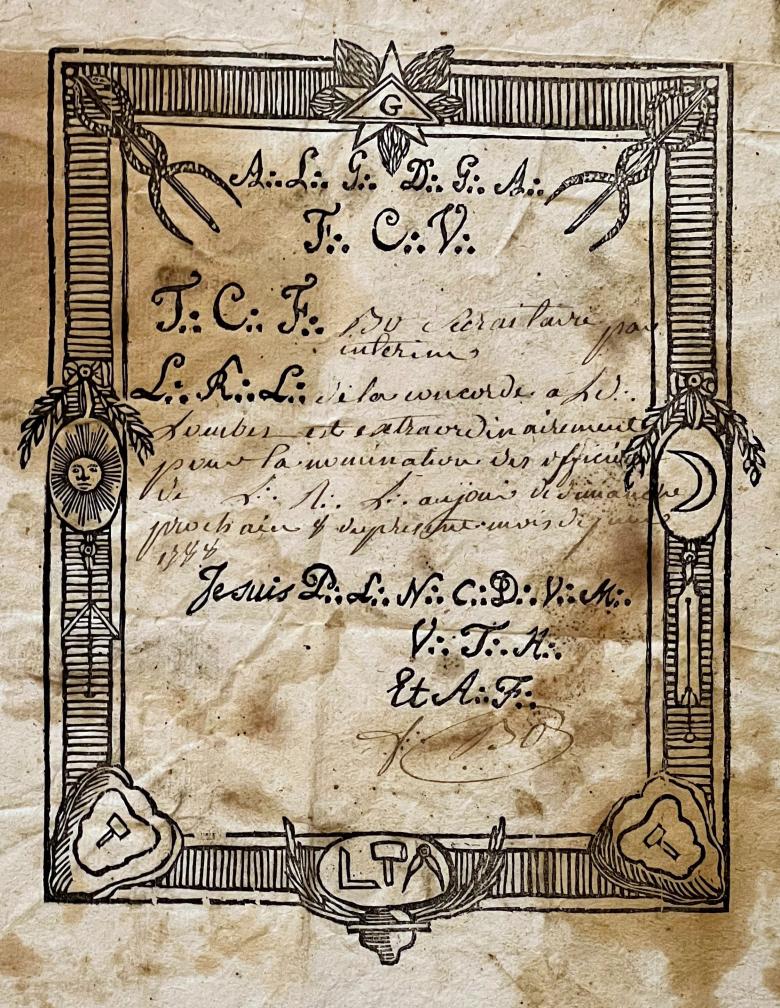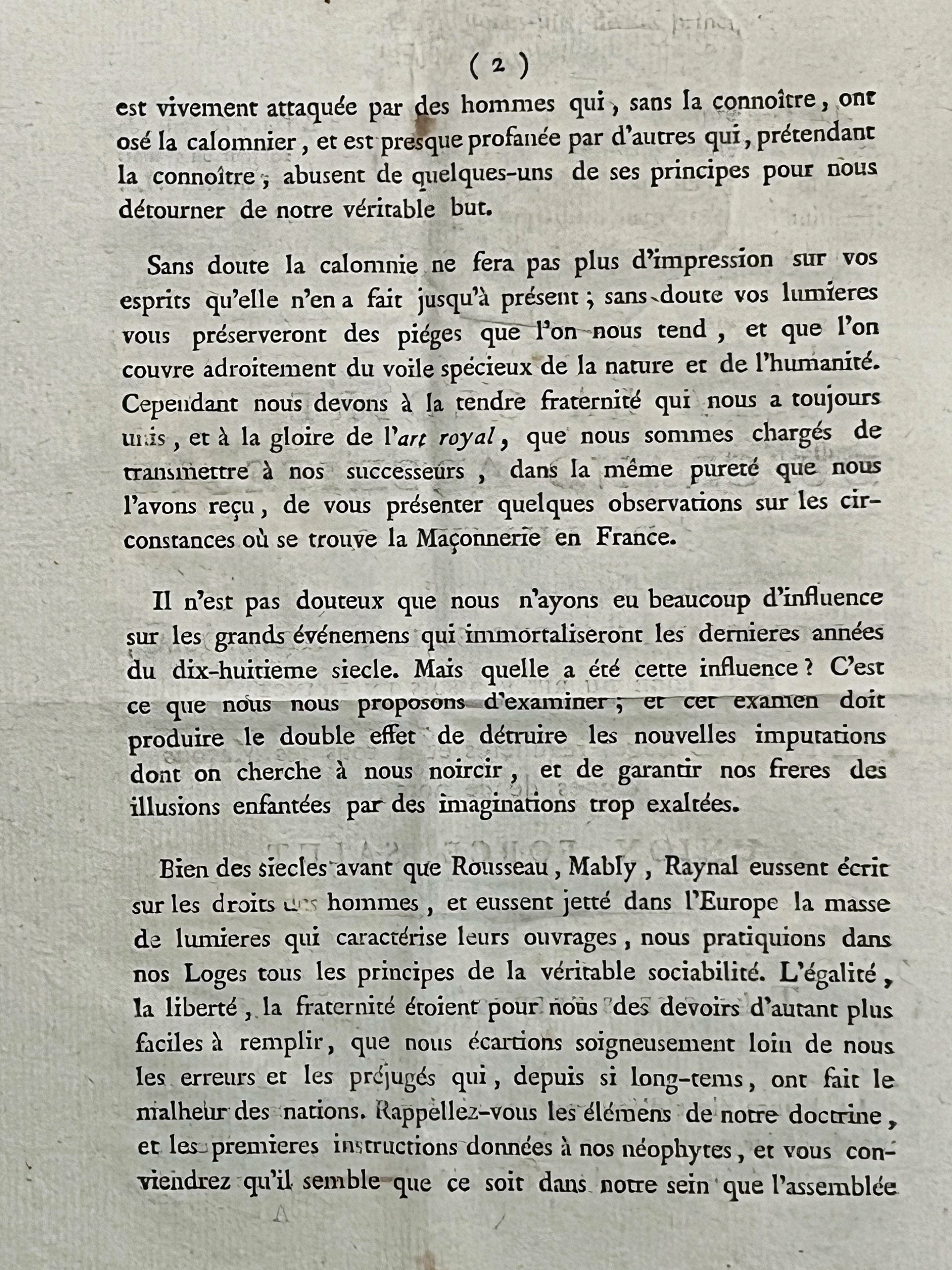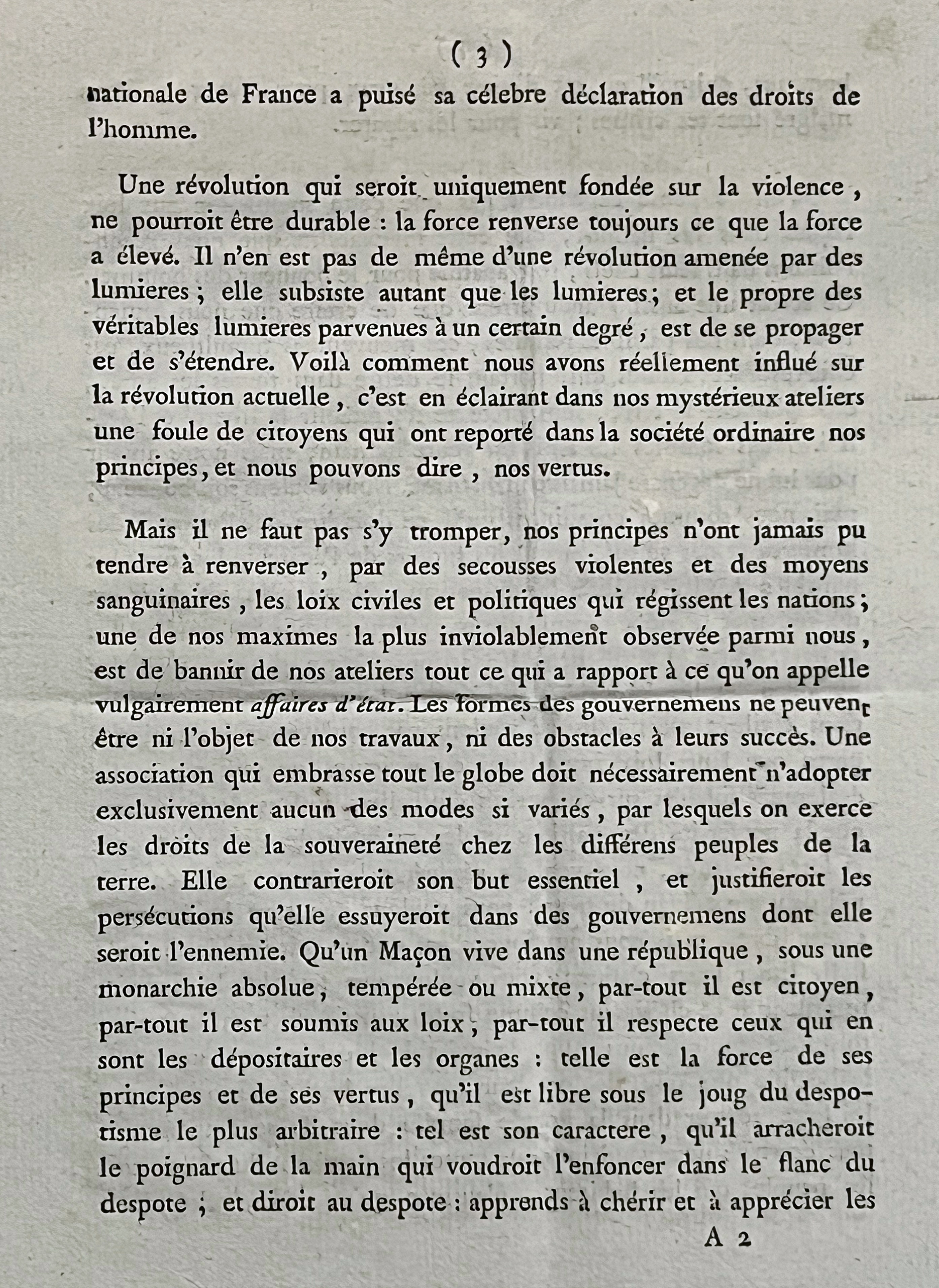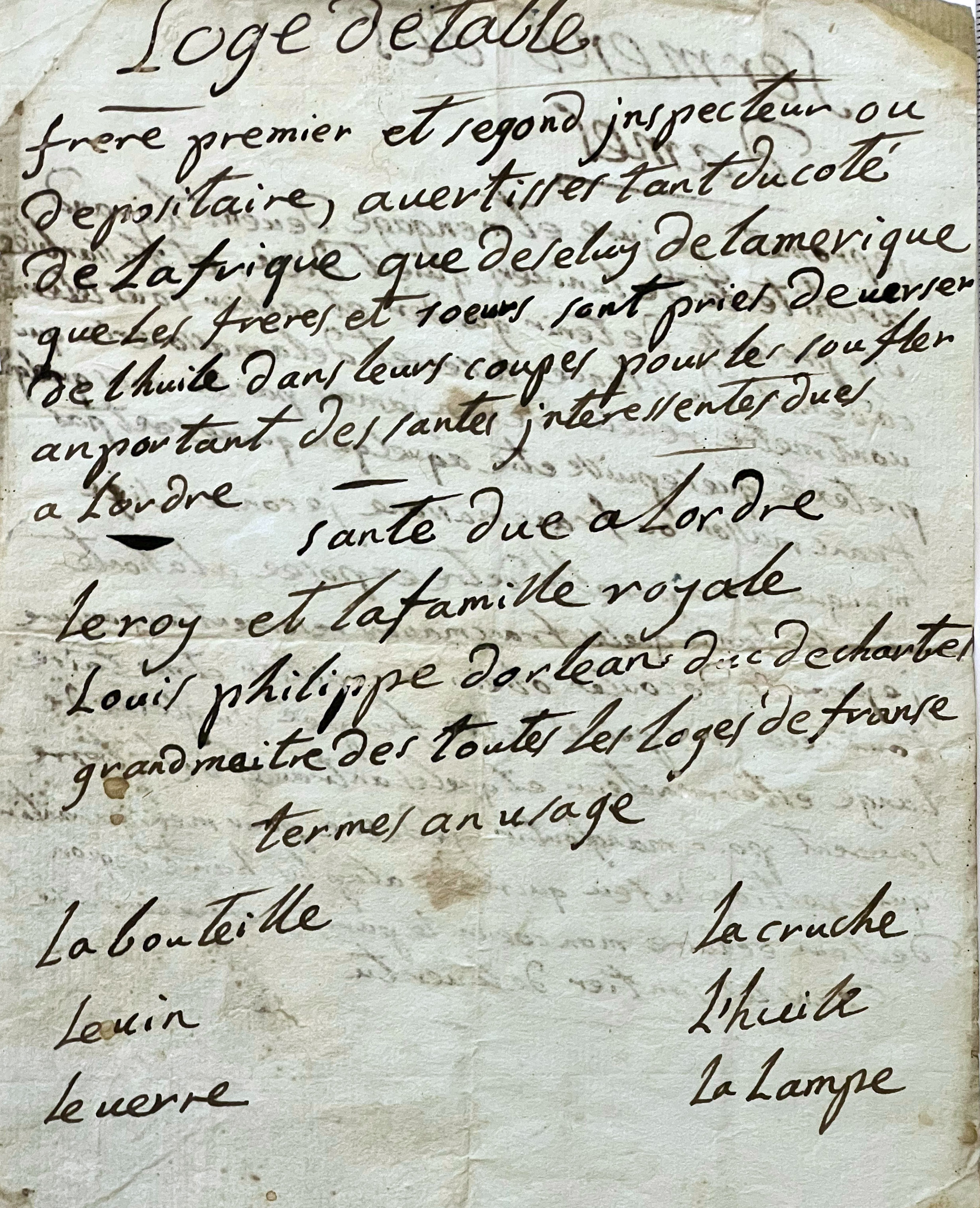An archive of Masonic letters from the times of the First French Revolution


Some of our latest news
An archive of Masonic letters from the times of the First French Revolution
On the anniversary of the revolutionary events in France, we present this week's exhibit – an archive of Masonic letters from the times of the First French revolution.
The documents cover the period from 1783 to 1791. Among other things, the archive contains letters of French Freemasons during the years of revolutionary events (1789-1791).
As it is known, the capture of the Bastille on 14 July 1789 is considered to be the beginning of the French Revolution, when the rebels stormed the fortress, which initiated the struggle against the monarchical system. The storming of the Bastille is still one of the most important holidays in modern France, symbolising republican and democratic ideas, as well as the basic ideals of Masonic philosophy - freedom, equality and fraternity.
In the Masonic letters, the need for political unity and equality as the basis of a prosperous society is discussed at length. French Freemasons at the beginning of the Revolution noted that it was the introduction of Masonic principles into politics that eliminated the previous inequalities between classes of society and weakened the idea of absolute monarchy, thereby returning freedom to French society.
At the same time, it is specifically noted in the archive that from the very first days of the Revolution, Freemasonry was confronted with biased slander. French Freemasons recognise the influence of the philosophy of fraternity on the ideals of the Revolution, but categorically condemn all violence. They emphasise that even during great upheavals, Freemasonry adhered to tolerance as a basic principle of fraternity. The letters point out that Freemasonry practised the ideals of Enlightenment long before French thinkers such as Rousseau and Voltaire, who are considered the ideological inspirations of the French Revolution. Moreover, the archive contains direct condemnations of violent revolutions and instead calls for a spiritual revolution - the pursuit of knowledge. This is an aspect that the Masonic lodges transmitted to society during the 18th century by spreading the Enlightenment ideas that reinforced the concept of a civil and humane society.

Disinformation about a general Masonic conspiracy and the role of Freemasons in the overthrow of monarchies exist to this day. However, French Freemasons debunk this myth in a 1790 letter which states the following: «Whether a Freemason lives in a republic, under an absolute monarchy, a mitigated or mixed monarchy, everywhere he is a citizen, everywhere he obeys the laws; everywhere he respects those who are their guardians: such is the strength of his principles and virtues that he is free under the oppression of the most vulgar despotism: such is his character that he will snatch the dagger from the hand that wants to plunge it into the side of the despot; and he will say to the despot: learn to appreciate and respect the people». This quote highlights the commitment of Freemasons to the biblical and humanist ideals of the Renaissance - love of your close ones, the pursuit of knowledge and the improvement of society through self-development.

This theme is further developed in other letters that refute accusations of incitement to rebellion and condemn fanaticism of any kind. The 1790 letter also states that liberty, equality and fraternity should be the basic principles and a moral compass of the new political order in France. These aspects formed the basis of the first French Constitution in 1791. Many letters deal with the day-to-day aspects of fraternity, such as the amounts of annual donations and the organisation of the lodges during this difficult period.
One of the letters mentions the Grand Master of the Grand Orient of France, Philippe Egalite, Duke of Orleans - a nobleman of the Bourbon dynasty and a blood relative of King Louis XVI. Philippe Egalite was one of the most prominent Freemasons who took an active part in politics. In fact, Egalite adhered to the idea of a constitutional monarchy inspired by the example of Great Britain, which can be considered an attempt to find a political compromise.

However, Philippe Egalite's noble political ideals were overshadowed by the trial of Louis XVI in December 1792, when the king was sentenced to death. Before the trial, Philippe Egalite had told his inner circle that he would vote against his cousin's execution, but during the trial, apparently out of fear of the politicians from the radical Montagnards party, he voted in favour of the king's execution. This shocked even Egalite's own supporters, and his condemned cousin said: «It really pains me to see that Monsieur d'Orléans, my kinsman, voted for my death». Philippe Egalite himself was subsequently executed at the end of 1793 on charges of anti-revolutionary activities.
In general, the archive of letters of French Freemasons vividly conveys the mood of contemporaries and eyewitnesses of the French Revolution. These letters illustrate the aspiration to the ideals of humanism and enlightenment, the desire to create a harmonious and just society. At the same time, we see the reaction to the bloody terror, radicalism and political instability.
The history of Freemasonry is still an excellent optical lens for understanding historical events, presenting them from the perspective of the most enlightened men who took an active part in these processes.
 Museum
Museum